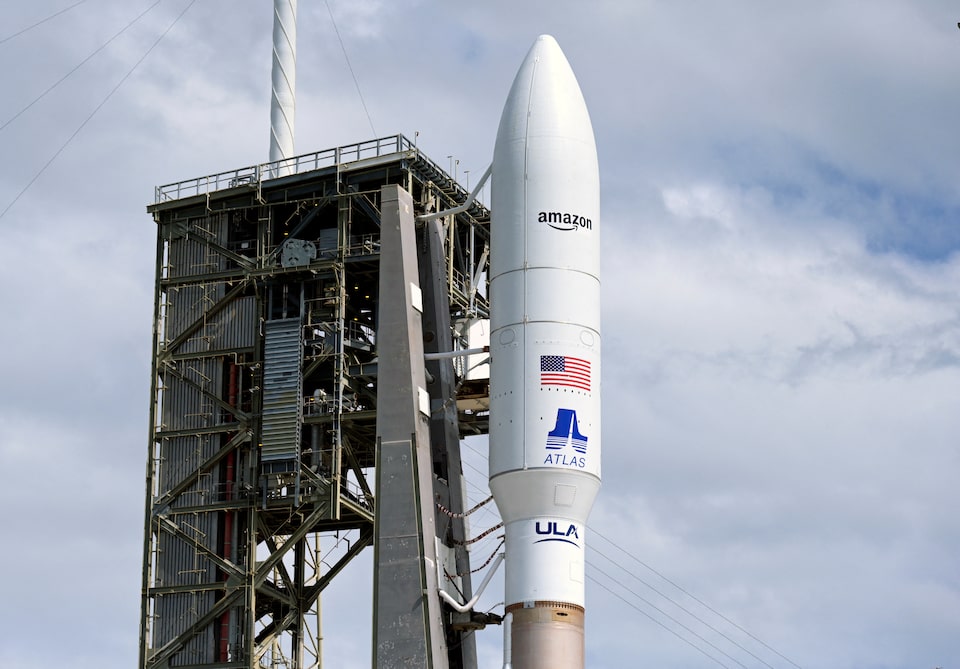A United Launch Alliance Atlas V rocket is on the launch pad carrying Amazon’s Project Kuiper internet network satellites, which are expected to eventually rival Elon Musk’s Starlink system, at the Cape Canaveral Space Force Station in Cape Canaveral, Florida, U.S., April 9, 2025. REUTERS

A United Launch Alliance Atlas V rocket is on the launch pad carrying Amazon’s Project Kuiper internet network satellites, which are expected to eventually rival Elon Musk’s Starlink system, at the Cape Canaveral Space Force Station in Cape Canaveral, Florida, U.S., April 9, 2025. REUTERS

A United Launch Alliance Atlas V rocket stands on the pad with a payload of Amazon’s Project Kuiper internet network satellites, which are expected to eventually rival Elon Musk’s Starlink system, at the Cape Canaveral Space Force Station in Cape Canaveral, Florida, U.S., April 9, 2025. REUTERS

A United Launch Alliance Atlas V rocket carrying Amazon’s Project Kuiper internet network satellites, which are expected to eventually rival Elon Musk’s Starlink system, moves to the launch pad, at the Cape Canaveral Space Force Station in Cape Canaveral, Florida, U.S., April 8, 2025. REUTERS

A United Launch Alliance Atlas V rocket is on the launch pad carrying Amazon’s Project Kuiper internet network satellites, which are expected to eventually rival Elon Musk’s Starlink system, at the Cape Canaveral Space Force Station in Cape Canaveral, Florida, U.S., April 9, 2025. REUTERS
Reporting by Joey Roulette





